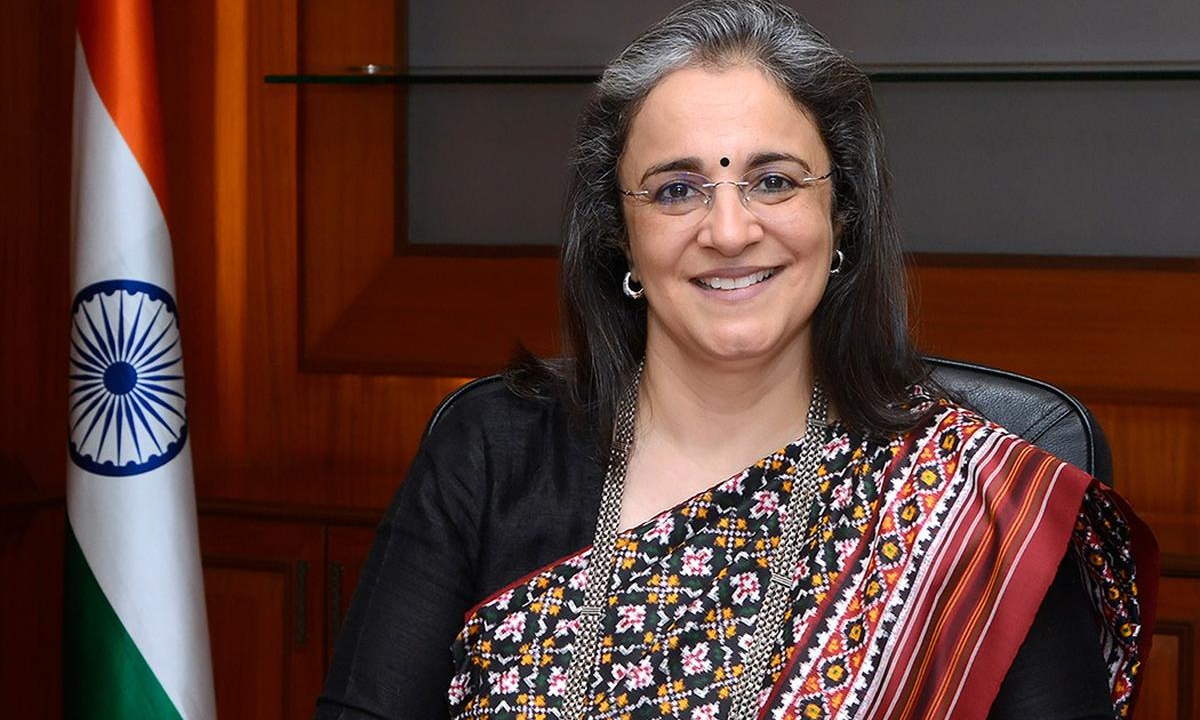

By K Raveendran
The desperation shown by BJP members of the parliamentary accounts committee to shield SEBI chairperson Madhabi Puri Buch from criticism for her failure to appear before the panel shows how her acts of commission and omission were not just a reflection of certain deficit in personal integrity, but how a sinister plot to use the market regulatory mechanism to safeguard the interests of corporates dear to the ruling party was brought into play.
Madhabi Puri Buch skipped a Parliament’s Public Accounts Committee meeting on Thursday, prompting panel chairman K C Venugopal to postpone the sitting, with NDA members accusing him of taking unilateral decisions and lodging a protest with the Lok Sabha Speaker.
The PAC had summoned Buch to address concerns rooted in the Hindenburg Research allegations against the Adani Group, which accuse the conglomerate of illicit financial manoeuvres and governance violations. However, Buch’s stance, combined with BJPs’ spirited defence of her absence, reveals a clear effort to delay or dilute accountability measures. The accusations against Adani, including alleged stock price manipulation and insufficient disclosure on offshore entities, have cast a shadow over SEBI’s autonomy. The question arises: is India’s premier regulatory body complicit in protecting corporate interests rather than safeguarding market fairness?
Under Buch’s leadership, SEBI has consistently exhibited reluctance in investigating Adani Group’s reported irregularities. Notably, despite widespread outcry and evidence presented in the Hindenburg report, SEBI made little progress in probing these charges, further drawing the ire of opposition parties, which perceive a bias in favour of the ruling party’s powerful business allies. Congress functionaries have particularly questioned Buch’s suitability, calling for her resignation to preserve SEBI’s integrity. The party contends that allowing her to remain undermines SEBI’s critical role in unbiased corporate regulation, given her prior associations with top corporate firms, such as ICICI Bank, and her role in private equity.
NDA members on the PAC have argued that Buch’s absence at the meeting was overblown, emphasizing procedural technicalities as the reason for her non-availability. However, the defensive stance of these members toward SEBI’s conduct and Buch’s resistance to direct accountability suggest a pattern of selective shielding that benefits influential corporations. PAC chairman Venugopal, on the other hand, has been vocal in calling for Buch’s compliance, lamenting the erosion of institutional transparency when regulatory heads evade parliamentary scrutiny, especially amid mounting evidence and public discontent.
Hindenburg’s report, which alleged that Adani engaged in fraud, escalated the stakes for SEBI. It raised doubts about the regulatory authority’s impartiality and accused Buch’s administration of downplaying suspicious Adani-linked transactions. Given Buch’s position and responsibilities, her failure to address these allegations before the PAC reinforces the impression that SEBI may be more intent on protecting its political affiliations than acting in public interest. The controversy surrounding Buch’s inaction has only been magnified by the BJP’s insistence that her position be insulated from parliamentary oversight, leaving the public to question whether her loyalties lie with the regulator’s mission or with influential political allies.
As the Hindenburg report has continued to reverberate through India’s financial and political landscapes, the response from SEBI under Buch’s leadership has been wanting in all respects. While other global regulatory bodies would likely react with greater immediacy to such serious allegations, SEBI’s approach has been cautious, bordering on dismissive. This, combined with Buch’s refusal to meet with the PAC, suggests a regulatory reluctance to disrupt the status quo, particularly where it concerns corporate giants with close government ties. For those watching the unfolding developments, it raises the uncomfortable possibility that SEBI is prioritizing political allegiances over its fiduciary duty to the public.
Such perceptions are further aggravated by Buch’s resistance to calls for her resignation. Normally, in cases involving such publicised allegations of regulatory failure, institutional heads are expected to step down to facilitate impartial investigation. Yet Buch’s insistence on staying put, supported by the BJP, deepens suspicions of a tacit pact between SEBI and political power brokers, which protects corporations under political patronage at the cost of regulatory independence.
The committee’s concerns are amplified by the allegations that Buch herself may have financial ties that warrant investigation. Such ties reveal conflicts of interest undermining her ability to regulate without bias. This controversy also draws attention to SEBI’s broader accountability structure, as its independence relies on robust internal checks and compliance with institutional mandates. By challenging the PAC, the BJP risks setting a precedent where regulatory heads can bypass critical oversight mechanisms, reducing public trust in India’s market regulators.
Parliament’s role in supervising regulatory bodies is a cornerstone of democracy, especially when allegations of collusion between corporations and government emerge. However, if PAC members are impeded from accessing essential testimony due to political opposition, then the PAC’s role as an accountability tool for democratic institutions becomes significantly weakened. (IPA Service)




